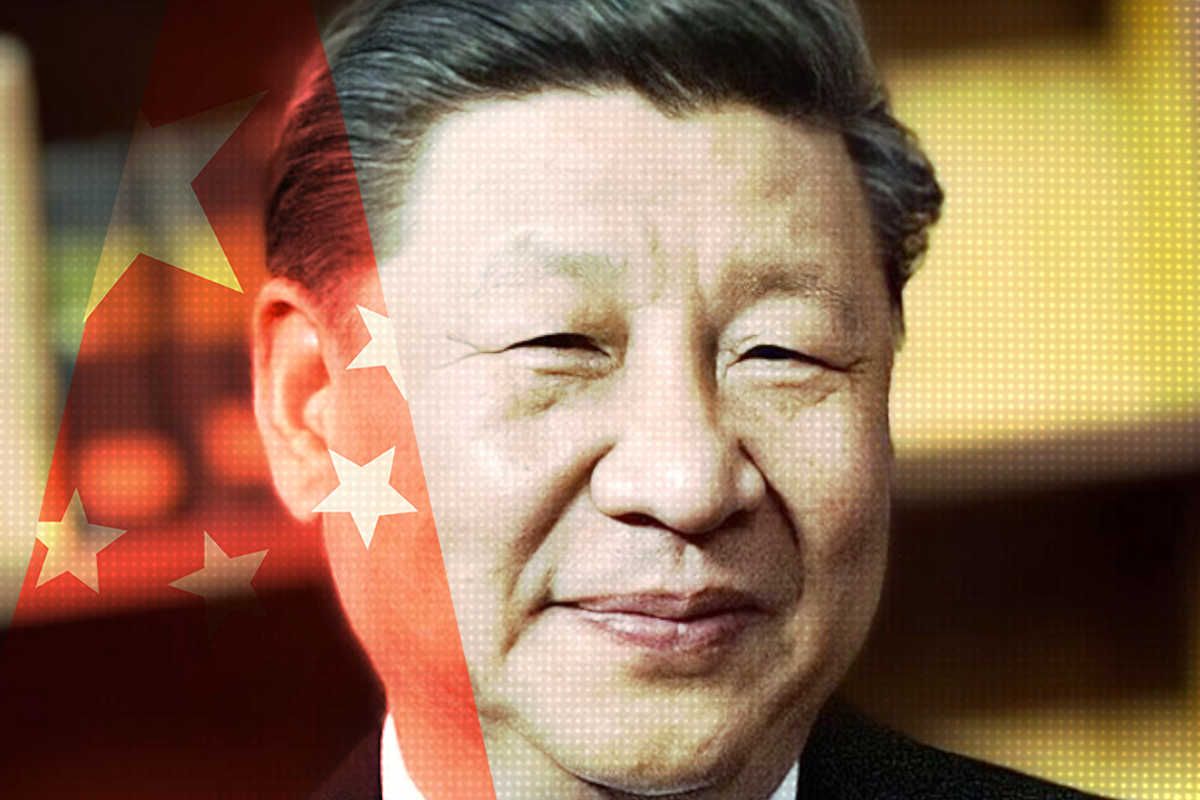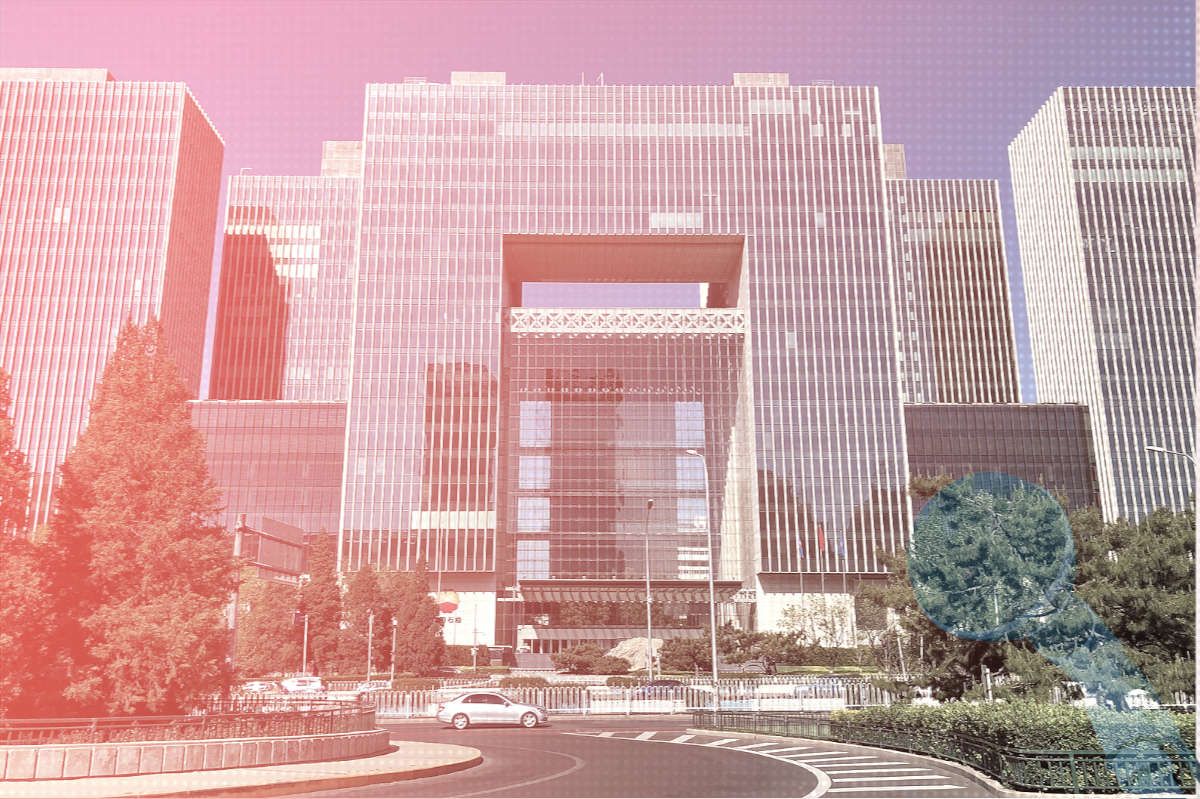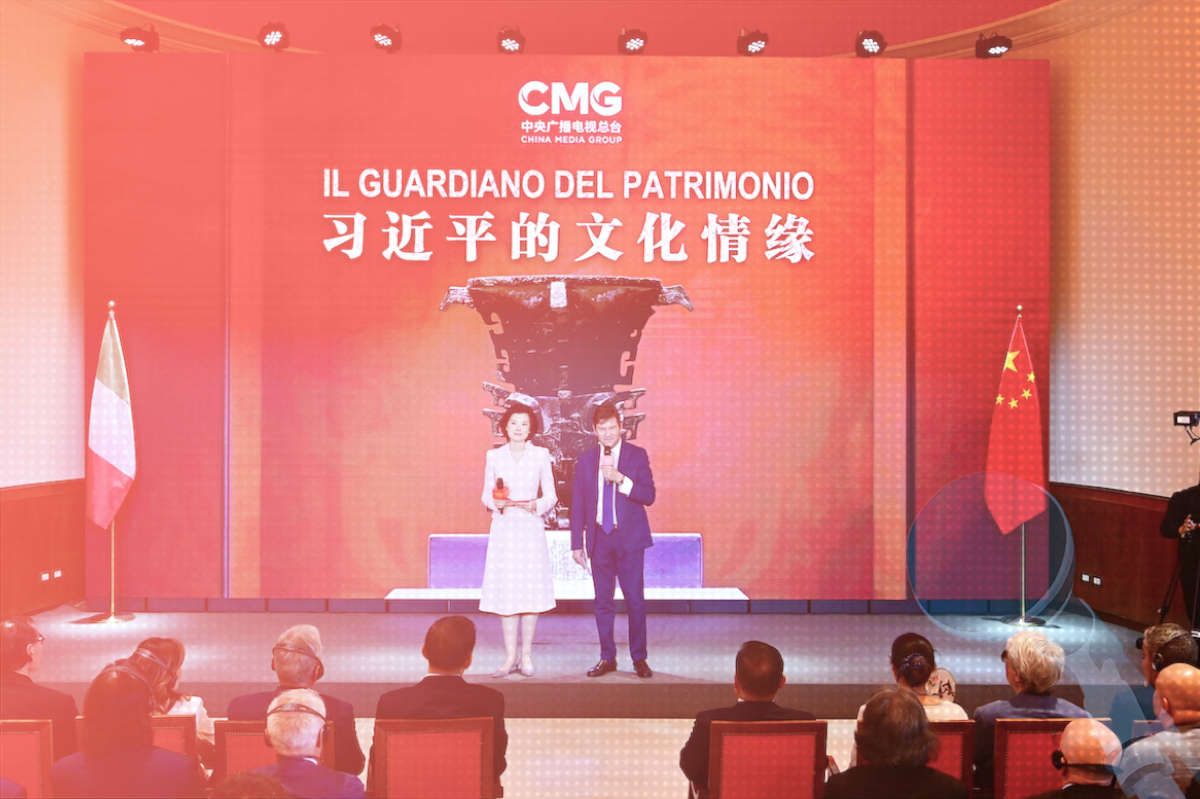China Newspeak
Insights from the Fifth Plenum
For observers of Chinese politics who eagerly await word from secretive events like this week’s Fifth Plenum of the 19th Central Committee of the CCP, the first whiffs of news are generally an anti-climax. The signs emerging from such events are rarely concrete, and require tedious unpacking.
Little surprise, then, that the “bulletin,” or gongbao (公报), emerging this evening from the Fifth Plenum is a vine-entangled wall of CCP rhetoric. If our task is to read the tea leaves, what we have here is sludge. There are, however, a few surprises to note in the bulletin, and these might offer some initial insights.
Banners Not Quite Flying
First, as we have noted repeatedly at CMP, one of the most important aspects of CCP discourse to watch over recent months has been the emergence (since the 19th National Congress in 2017) of Xi Jinping’s “banner term” (旗帜语) – “Xi Jinping Thought on Socialism with Chinese Characteristics for the New Era” (习近平新时代中国特色社会主义思想) – and its gradual transformation from a cumbersome and unpalatable phrase into a short and powerful statement of Xi’s power and centrality, namely “Xi Jinping Thought” (习近平思想). When it comes to the world of Party rhetoric, this is the General Secretary’s end-game, putting his legacy on equal footing with Mao Zedong.
More recently, we have seen more robust talk about various forms of shortened Xi thoughts in concrete policy areas, perhaps signalling a testing of the waters at the top of the leadership. One of the most prominent cases was the opening in July by foreign minister Wang Yi of a new center for “Xi Jinping Thought on Diplomacy.” Abridged Xi thoughts like this get us a bit closer to the coveted “Xi Jinping Thought.”
What do we find in the bulletin released today? The longer version of Xi’s banner term does appear, but just twice in the text. And in both of these instances the lengthy phrase appears in the context of standardized introductions of the banner terms of past CCP leaders (think of it as the fossil record of CCP legacies):
一致认为,一年来,中央政治局高举中国特色社会主义伟大旗帜,坚持以马克思列宁主义、毛泽东思想、邓小平理论、“三个代表”重要思想、科学发展观、习近平新时代中国特色社会主义思想为指导 . . .
It was unanimously agreed that over the past year, with the Politburo of the Chinese Communist Party raising high the great banner of socialism with Chinese characteristics, adhering to the guidance provided by Marxism-Leninism, Mao Zedong Thought, Deng Xiaoping Theory, the important thought of the “Three Represents,” the scientific view of development, and Xi Jinping Thought on Socialism with Chinese Characteristics for the New Era . . .
The shortened phrase “Xi Jinping Thought” does not appear at all in the bulletin. However, there is one stepping stone phrase in the arena of national security, the text emphasizing the need to “carry out Xi Jinping Thought on Military Strengthening” (习近平强军思想), which also mentions the need to “uphold the party’s absolute leadership over the people’s army.”
We cannot of course definitively read the internal environment in the CCP from its discourse, but the absence of Xi’s coveted “thought” seems to indicate that the work of consolidating his strength and preparing his legacy is ongoing.
Looking to the Future
While we’re on the subject of Xi Jinping’s legacy, there is the crucial question of succession. Xi Jinping removed presidential term limits back in 2018. Will he have a third, or even a fourth term, during which to further shore up his power and position? The bulletin cannot give us a definitive answer. But if we look at how each of the four most recent plenary bulletins involving new five-year plans have been introduced in their titles, there is perhaps an interesting clue:
In 2005: Proposal by the Central Committee of the Communist Party of China for the 11th Five-Year Plan for National Economic and Social Development /《中共中央关于制定国民经济和社会发展第十一个五年规划的建议》
In 2010: Proposal by the Central Committee of the Communist Party of China for the 12th Five-Year Plan for National Economic and Social Development /《中共中央关于制定国民经济和社会发展第十二个五年规划的建议》
In 2015: Proposal by the Central Committee of the Communist Party of China for the 13th Five-Year Plan for National Economic and Social Development /《中共中央关于制定国民经济和社会发展第十三个五年规划的建议》
In 2020: Proposal by the Central Committee of the Communist Party of China for the 14th Five-Year Plan for National Economic and Social Development and a Vision for 2035 / 《中共中央关于制定国民经济和社会发展第十四个五年规划和二〇三五年远景目标的建议》
The addition in this year’s plan of “and a vision for 2035” is impossible to miss, and could suggest not just the extension of current policymaking through to 2035, but the extension of the current leadership. This could be an important statement of intent, that Xi Jinping plans to continue influencing policy for more than a decade to come.
But we have another important statement as well. In the section on modernizing national security and the military toward the end of the bulletin, there is mention of “ensuring the achievement by 2027 of the century-long goal of modernizing the army” (确保二〇二七年实现建军百年奋斗目标). It’s hard not to read this as a statement of Xi Jinping’s personal determination to preside not just over the centennial of the CCP in July next year, but also the centennial of the formation of the People’s Liberation Army on August 1, 1927.
Celebrations for the centennial of the PLA would be happening several months before the 21st National Congress of the CCP, which should come in the fall of 2027. So we can, by this reasoning, have some expectation that Xi expects to serve at least one more term, through the end of 2027.
Rivalries Between the Lines
On the international environment facing China, and in particular US-China tensions and the upcoming presidential election in the US, we can note that there is no direct mention of US-China relations, which might have been anticipated.
But the section dealing with China’s external relations – coming after a long bit about the war on poverty and how the plenary session “highly appraised the definitive achievements made in the decisive victory in building a comprehensively well-off society” – mentions that the session “deeply analyzed the profound and complex changes facing our country’s development environment.” That is code, certainly, for the US-China trade war and a range of other issues China has faced as it has tried to expand its presence in the global economy, achieve technological dominance, and push programs like the Belt and Road Initiative.
In this same section, we have language about how “today’s world is undergoing immense changes such as have not been seen in a century, a new round of technological and industrial revolution is in deep development, and the balance of international forces is undergoing profoundly readjustment.” This seems to be an indirect reference to the US-China rivalry and changes to the global order, as well as China’s intention to seize the opportunity afforded by the international environment to achieve technological dominance.
We can also find the phrase “technological independence and self-reliance” (科技自立自强), which has been used sporadically by Chinese media (less by official state media) in the midst of the US-China trade war, but has not yet been given this level of prominence. An article posted this evening at the Shanghai-based website Guancha.cn also notes the significance of the statement in the bulletin about “taking scientific and technological independence and self-reliance as strategic support for national development” (把科技自立自强作为国家发展的战略支撑).
The bulletin concludes with two oft-seen phrases in Chinese diplomacy, “promoting the building of a new model of international relations” (推动构建新型国际关系) and a “community of common destiny for mankind” (人类命运共同体).
The Need for a New Comprehensive
Chinese discourse analysts and other sad souls who follow the world of the CCP’s special phrasings, or tifa (提法), will be familiar with the so-called “four comprehensives,” a set of political goals laid out by Xi Jinping in 2014. For the past six years, these have been set out as follows:
Comprehensive building of a moderately well-off society / 全面建成小康社会
Comprehensive deepening of reform / 全面深化改革
Comprehensive promotion of governing the nation in accord with the law / 全面推进依法治国
Comprehensive strict governance of the Party / 全面从严治党
But of course 2020 was established long ago as the year during which China was to fully accomplish the building of a moderately well-off society, and its success in doing so, and “definitively,” is mentioned in the first one-fifth of the bulletin. Before you applaud, do remember that there was never any way that the CCP was NOT going to reach this goal, which is how goals work under the Party’s leadership.
So clearly the “four comprehensives” must change, right? Right. And this is exactly what we see. The formula now enshrined in the bulletin – as we witness the birth of a new set of phrases – is led by a new objective, ”promoting the comprehensive building of a modern socialist country” (推进全面建设社会主义现代化国家).





















